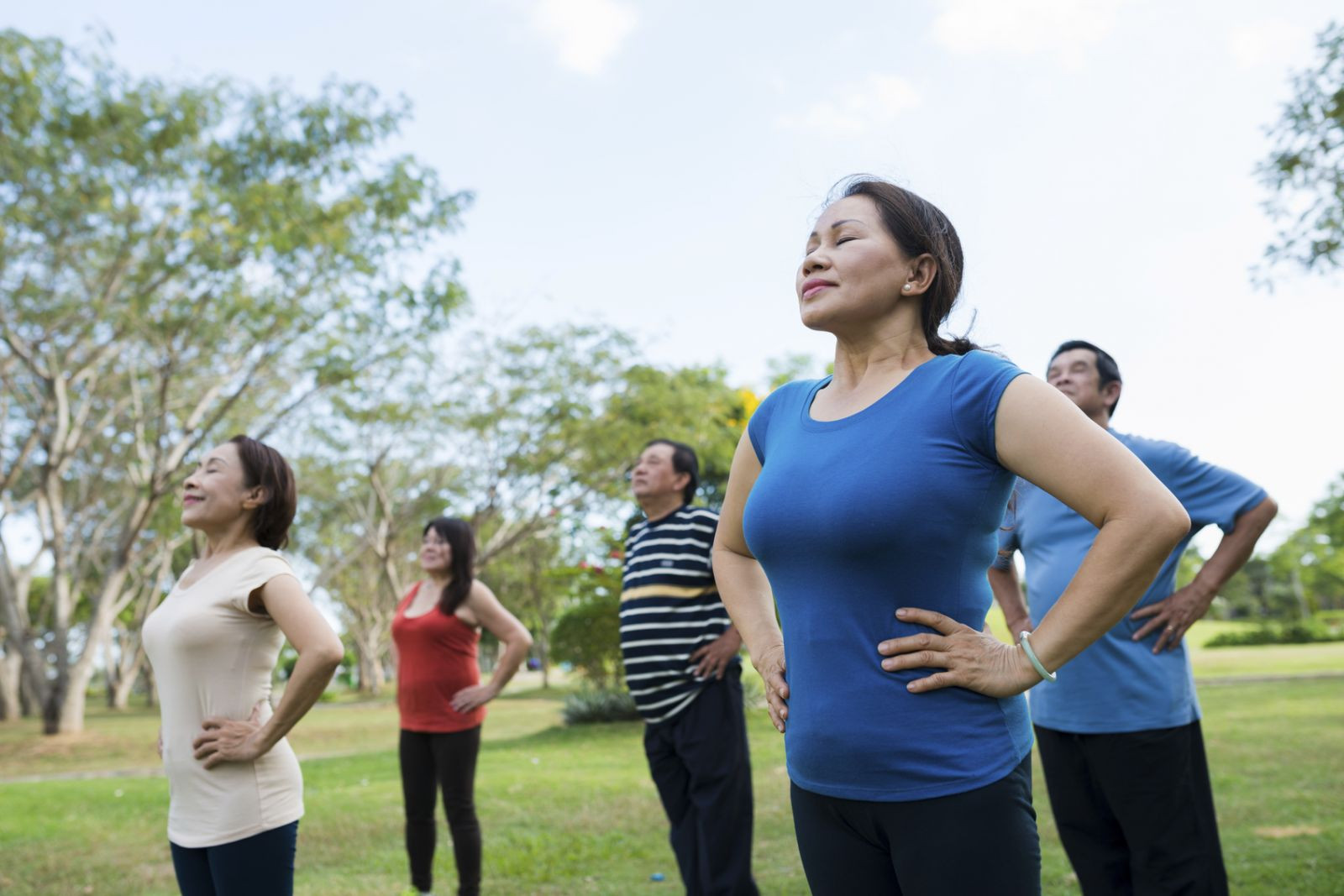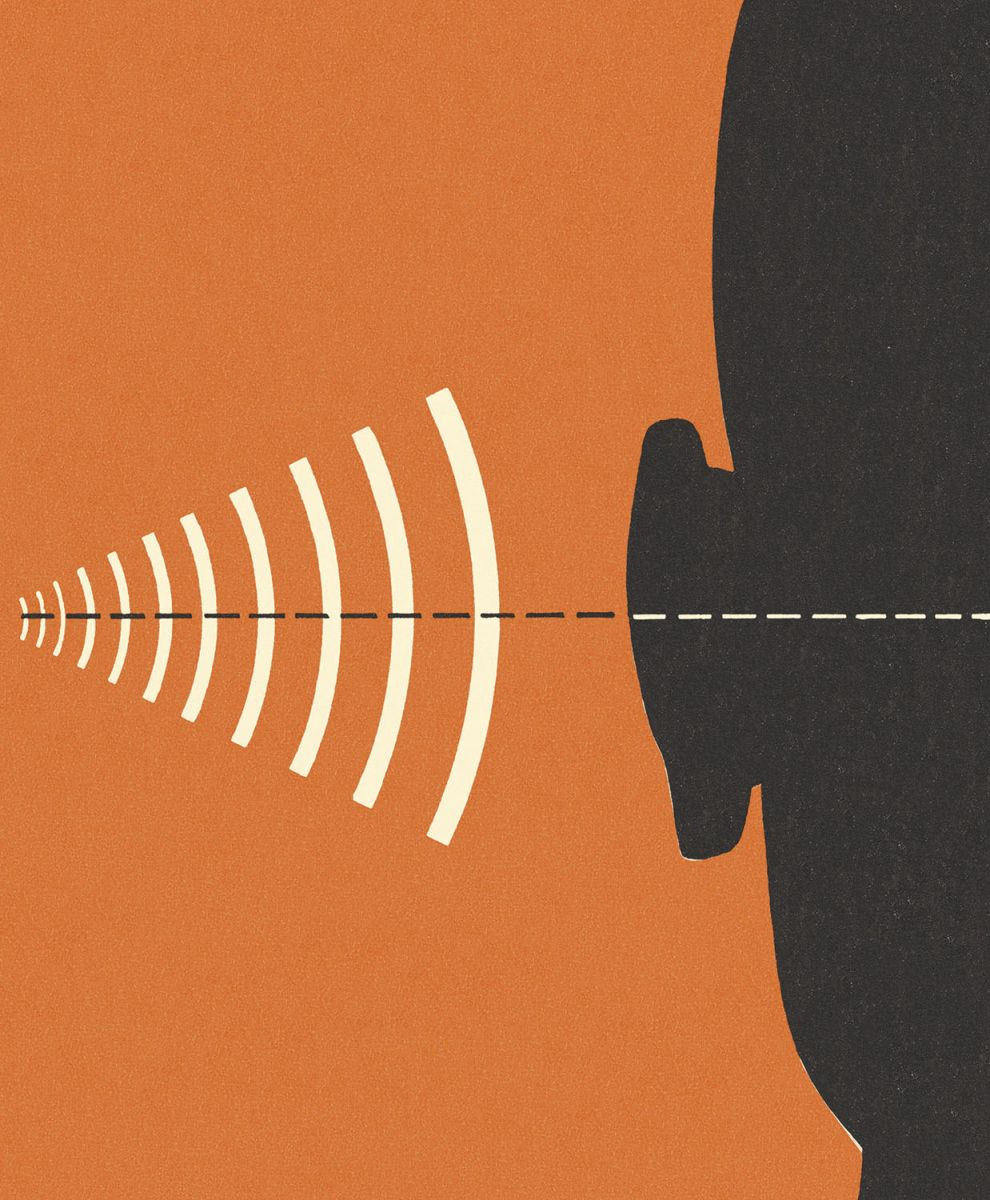
5 timeless habits for better health

What are the symptoms of prostate cancer?

Is your breakfast cereal healthy?

When pain signals an emergency: Symptoms you should never ignore

Does exercise give you energy?

Acupuncture for pain relief: How it works and what to expect

How to avoid jet lag: Tips for staying alert when you travel

Biofeedback therapy: How it works and how it can help relieve pain

Best vitamins and minerals for energy

Should you take probiotics with antibiotics?
Staying Healthy Archive
Articles
Anxiety and physical illness
Understanding and treating anxiety can often improve the outcome of chronic disease, such as GI tract problems and heart disease.
With headlines warning us of international terrorism, global warming, and economic uncertainty, we're all likely to be a little more anxious these days. As an everyday emotion, anxiety — the "fight or flight" response — can be a good thing, prompting us to take extra precautions. But when anxiety persists in the absence of a need to fight or flee, it can not only interfere with our daily lives but also undermine our physical health. Evidence suggests that people with anxiety disorders are at greater risk for developing a number of chronic medical conditions. They may also have more severe symptoms and a greater risk of death when they become ill.
The anatomy of anxiety
Anxiety is a reaction to stress that has both psychological and physical features. The feeling is thought to arise in the amygdala, a brain region that governs many intense emotional responses. As neurotransmitters carry the impulse to the sympathetic nervous system, heart and breathing rates increase, muscles tense, and blood flow is diverted from the abdominal organs to the brain. In the short term, anxiety prepares us to confront a crisis by putting the body on alert. But its physical effects can be counterproductive, causing light-headedness, nausea, diarrhea, and frequent urination. And when it persists, anxiety can take a toll on our mental and physical health.
Repaying your sleep debt
Why sleep is important to your health and how to repair sleep deprivation effects.
If sleep were a credit card company, many of us would be in deep trouble.
Medical evidence suggests that for optimum health and function, the average adult should get seven to nine hours of sleep daily. But more than 60% of women regularly fall short of that goal. Although each hour of lost slumber goes into the health debit column, we don't get any monthly reminders that we've fallen in arrears.
How should core work fit into your overall exercise plan?
Your core muscles are the sturdy link between your lower body and upper body. Every move you make starts in your core or transfers through it. So, a weak or tight core can translate into less power from your arms and legs.
It's well worth including core work in your exercise plan. The Physical Activity Guidelines for Americans from the U.S. Department of Health and Human Services recommend the following well-rounded plan:
A breathing technique to help you relax
The practice of yoga incorporates many separate breathing techniques (above and beyond the coordinated breathing you do during yoga routines) that can help relax you and release tension. And many of these techniques can be done anytime, anywhere — not just during yoga class.
If you'd like to reap the benefits of these breathing techniques, start with the abdominal breathing technique described below. Once you've mastered abdominal breathing, you can then try others based on the unique benefits that each technique offers.
Should you carry the opioid overdose rescue drug naloxone?
The Surgeon General has issued an advisory recommending that people carry and know how to use naloxone, and although it is an effective treatment for overdose, it does not address the larger issues around the opioid crisis.
The health benefits of shared living
Living with others offers a way to stay independent and avoid a cascade of mental, emotional and physical health problems.
Image: © Petar Chernaev/Getty Images
Americans want to age in place. AARP research finds that nine out of 10 people ages 65 or older want to stay in their homes in their later years.
That goal isn't always achievable, because of challenges to independence such as a limited income or chronic health problems. "Sometimes it's frailty. Weakness, stiffness, and aching joints creep up on you, decrease function, and keep you from climbing stairs or taking care of yourself or your home," says Dr. Erin Stevens, a geriatrician and palliative care physician at Harvard-affiliated Massachusetts General Hospital.
Ways to dig out of a dietary rut
Trying new foods, cooking in batches, and inviting friends to dinner give mealtime some zing.
Image: © OksanaKiian/Getty Images
You may be bored if you're eating the same foods all the time. Even worse, you may be missing out on important nutrients from foods that aren't part of your regular diet. And if that's the case, you're not alone. "I see it a lot with older adults. Their diet isn't great. They get into a rut and cook simple meals, or they rely on prepared food," says dietitian Teresa Fung, adjunct professor in the nutrition department at the Harvard T.H. Chan School of Public Health.
Why the rut?
There are many reasons why people get into a menu rut or stop eating healthy, nutritious foods in older age. It may be that you're
Managing your medications before a medical procedure
You may need to stop taking blood thinners, certain painkillers, herbs, and supplements to reduce your risk for bleeding.
Image: © Steve Debenport/Getty Images
No one wants to have surgery, even minor surgery, but sometimes minor procedures, such as a tooth extraction or a colonoscopy, are unavoidable. When that happens, you may hear that it's important to stop taking certain medications. Understanding exactly which drugs to suspend — and when — can be confusing. "I get a lot of questions about this," says Joanne Doyle Petrongolo, a pharmacist at Harvard-affiliated Massachusetts General Hospital.
Blood thinners
All surgery involves cutting body tissue, and that leads to bleeding. Blood thinners—medications like anticoagulants and antiplatelet drugs—can boost the risk for bleeding by keeping the blood from clotting.
Mom was right: Don't wolf down your dinner
News briefs
Image: © Rawpixel Ltd/Getty Images
Here's a simple way to try to control your weight: take more time to eat your meal. It's one of several strategies that appeared to help people in a study published online Feb. 12, 2018, by BMJ Open. Researchers analyzed about six years' worth of health insurance claims and doctor visit details for 60,000 Japanese men and women with type 2 diabetes. The doctor visits included questions about how quickly people ate their meals. People who ate slowly were 42% less likely to be obese than people who gulped down their food. The study was only observational and therefore can't prove that eating slowly caused weight loss, but other studies have reported similar findings. Also, it takes about 15 minutes after you start to eat for the "getting full" signals to reach your brain — and a person can eat a lot of calories in 15 minutes. So slow down and savor every bite. For more information, check out the Harvard Special Health Report 6-Week Plan for Healthy Eating (www.health.harvard.edu/swp).
More reasons to get your hearing checked
News briefs
Hearing loss is a common and serious disability that can take you out of conversations and put you at risk for depression and isolation. Two recent studies from JAMA Otolaryngology–Head & Neck Surgery suggest that hearing loss is also connected to several other conditions. One study of national health surveys, published online Jan. 25, 2018, found that hearing loss was associated with heart failure: 75% of people ages 70 or older with heart failure also had hearing loss. The other study, published online Dec. 7, 2017, evaluated 36 studies that included more than 20,000 people who'd had hearing and cognition tests. Scientists found that age-related hearing loss was significantly associated with a decline in all areas of thinking skills and with developing dementia. These studies were observational, so they don't prove that hearing loss causes thinking problems or heart failure. But they're a reminder of the importance of having hearing loss checked out. The problem can sometimes be resolved without hearing aids if it's being caused by earwax, an ear infection, or an abnormal bone growth.
Image: © CSA-Printstock/Getty Images

5 timeless habits for better health

What are the symptoms of prostate cancer?

Is your breakfast cereal healthy?

When pain signals an emergency: Symptoms you should never ignore

Does exercise give you energy?

Acupuncture for pain relief: How it works and what to expect

How to avoid jet lag: Tips for staying alert when you travel

Biofeedback therapy: How it works and how it can help relieve pain

Best vitamins and minerals for energy

Should you take probiotics with antibiotics?
Free Healthbeat Signup
Get the latest in health news delivered to your inbox!
Sign Up











